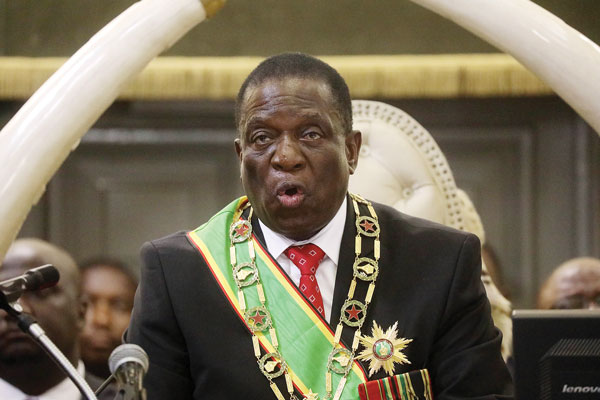
EDITORIAL COMMENT
IT is Sunday in Zimbabwe’s capital city, Harare. Central business district churches are jam-packed two days after President Emmerson Mnangagwa outlawed all gatherings of more than 100 people as a health precaution in the wake of the fast-spreading global disease: Coronavirus (COVID-19).
Even after the country last week recorded two cases of the deadly disease, for many in the southern African nation, prospects of the pandemic wreaking havoc here appear remote and seem to be the least of their worries.
South of the city, Mbare — the most densely populated suburb in the country, is teeming with thousands of people going about their usual business, albeit the unusual time the world is going through as all first world capitals have all been virtually shut down.
The World Health Organisation’s recent warning that Africa should “prepare for the worst and prepare today” seems to be a distant call for Zimbabwe where poverty and unemployment are driving citizens nuts. More so, this is a country where religious beliefs supersede common sense and logic to an extent that cults and prophets have set up camp and, like in the past, will most likely urge their followers to trust in supernatural powers to save them from COVID-19. In the past, many have been told to stop taking their HIV medication and invoke divine intervention to save them.
By nature, Africans are very social and the social distancing dictates of coronavirus will be difficult to observe as public scenes inform. Everywhere people still hug, laugh and hold hands and they might only wake up when people start dropping dead on the street.
Public buses are chock-full with passengers standing in the passage almost hug-tight and in commuter omnibuses, passengers sit close-up shoulder to shoulder, conducive environments for the spread of the disease.
It gets grimmer. The scarcity of information on the virus is evidently worrying.
- Chamisa under fire over US$120K donation
- Mavhunga puts DeMbare into Chibuku quarterfinals
- Pension funds bet on Cabora Bassa oilfields
- Councils defy govt fire tender directive
Keep Reading
“So if you catch the disease, does it mean that you have to stay at home till you die because I hear there is no cure for it?” asked one commuter in a Norton to Harare-bound commuter omnibus.
For some, that the virus has been linked to medication for some of the world’s deadliest diseases — HIV and malaria — has further complicated matters in a country where stigma is an easy commodity to trade around. And politicians are not making it any easier. The country’s leadership appears to see politics in everything, having since described the disease a punishment from God on global powerhouses for imposing sanctions on Zimbabwe.
The situation is complex and scary for a country like Zimbabwe where hunger is threatening more than half of the nation’s population which virtually survives hand to mouth. And locking down the country would be disastrous given that the bulk of food is imported. We hope and pray that the worst does not visit us any time soon, otherwise the country might become Africa’s first COVID-19 epicentre.











